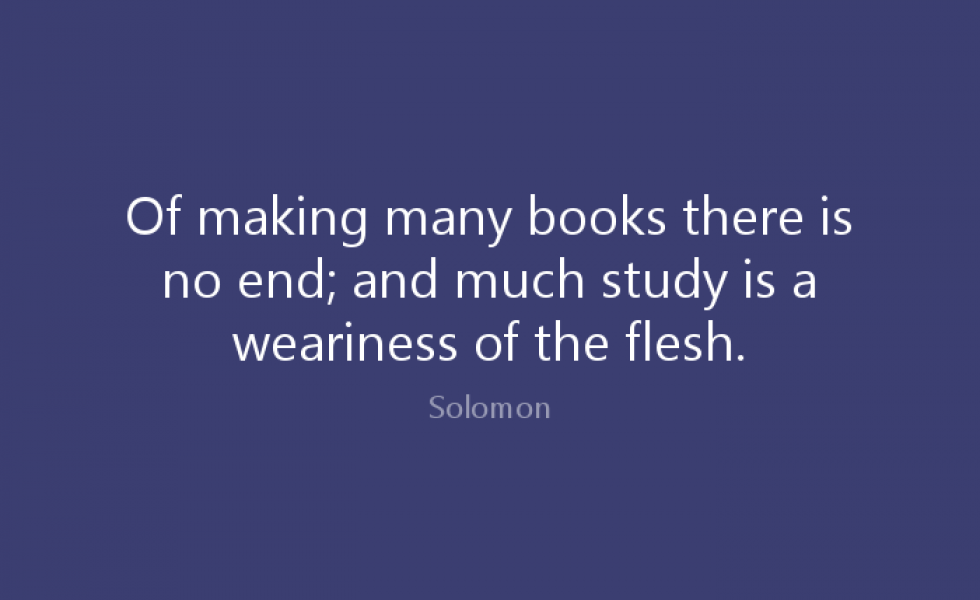If you’d like to read more on the Trinity, here is a list of suggestions, which is obviously not exhaustive. Whatever one’s thoughts regarding the online debate over the Trinity and ESS/ERAS, we can be thankful that so many are asking vital questions about the Triune God. We can also be thankful to the many gifts God has given to the church. As Augustine didn’t say, sit down and read.
Annotated Trinity Bibliography
Introductory
Donald Fairbarn, Life in the Trinity (IVP). Draws largely on four patristic theologians.
Fred Sanders, Deep Things of God (Crossway). Shows how the Trinity permeates all of our faith and practice.
Tim Chester, Delighting in the Trinity.
Robert Letham, The Holy Trinity (P&R). Not sure why he glossed right over the 17thC, however.
Ryan McGraw, Is the Trinity Practical? (RHB).
Michael Reeves, Delighting in the Trinity (IVP).
James White, The Forgotten Trinity (Bethany House).
Intermediate
I’d also add Warren Smith’s essay on the Fourth Century in the Oxford Handbook of the Trinity as an intermediate level intro. Any pastors or professors who are not up to speed could read that and get up to speed J. Warren Smith, The Trinity in the fourth century fathers in The Oxford Handbook of the Trinity (OUP).
Gilles Emery, The Trinity (CUA). Best introduction to catholic doctrine and its terms.
David S. Yeago, “The New Testament and the Nicene Dogma: A Contribution to the Recovery of Theological Exegesis” in The Theological Interpretation of Scripture: Classic and Contemporary Readings. Shows how Phil. 2 leads to Nicene terms by talking about distinction between judgments and concepts.
Brandon Crowe/Carl Trueman, Essential Trinity (IVP).
Geerhardus Vos, Reformed Dogmatics, Volume 1. Fairly standard stuff. Nothing earth-shattering.
Advanced
Joseph Pohle/Arthur Preuss, The Divine Trinity (Scholars Choice) Peter Escalante says this is really good so it must be because Peter Escalante only suggests the best.
Gregory Nazianzus, On God and Christ (St Vladimir’s Seminary Press). Includes his five theological orations and a couple key letters. Single most significant patristic starting point.
Basil, Against Eunomius (CUA). Key texts from later fourth century father.
Augustine, The Trinity (New City Press). My favorite account of the Trinity in the patristic era.
Gilles Emery, The Trinitarian Theology of St. Thomas Aquinas (OUP). Best introduction to medieval and patristic terminology and distinctions.
Khaled Anatolios, Retrieving Nicaea (Baker). Helpful history of key figures and moves.
John Webster, God Without Measure, Volume One: God and the Works of God (T & T Clark). Puts Trinitarian thinking to use in both talking of God in himself and God in his works. Essays on “eternal generation,” “it was the will of the Lord to bruise him,” and “place of Christology in ST” are especially significant.
Matthew Levering, Scripture and Metaphysics: Aquinas and the Renewal of Trinitarian Theology (Blackwell). Engages narrative theology and post-metaphysical thought of the last 75 years by retrieving the exegetical and metaphysical account of Aquinas.
Lewis Ayres, Nicaea and Its Legacy (OUP). See also HTR review symposium edited by Sarah Coakley. The best map of fourth century debates. The final chapter maps issues of scripture and tradition methodologically as well.
Fred Sanders, The Triune God (New Studies in Dogmatics for Zondervan, forthcoming this fall). Offers an account of Trinitarian exegesis, especially of OT texts.
Scott Swain, The God of the Gospel (IVP). Interacts with evangelical historicist approaches to theology and economy in Jenson and McCormack (pt 1) and then offers a catholic and Reformed alternative (pt 2).
Wesley Hill, Paul and the Trinity (Eerdmans). Shows how NT appropriation of language of “lord” not only applies it to Jesus but also shows his “relations” to Father and Spirit, so that NT not only teaches a “high Christology” but a Trinitarian Christology.
Allen/Swain, Christian Dogmatics (Baker Academic) – first four chapters address these issues reg. “knowledge of God,” “divine triunity,” “divine attributes,” and “covenant of redemption.”
Also crucial here are essays by Steven Boyer, “Articulating Order: Trinitarian Discourse in an Egalitarian Age” (Pro Ecclesia), Keith Johnson “Augustine, Eternal Generation, and Evangelical Trinitarianism” (Trinity Journal, Fall 2011), and Scott Swain/Michael Allen “The Obedience of the Eternal Son” (IJST, March 2013).
Boethius, “The Trinity Is One God and Not Three Gods,” (Kindle) is a useful exposition of the logical foundations of the doctrine esp. in relation to Aristotle’s ten categories of predication. But it is definitely not intro level–he says explicitly that it’s for a very small audience (indeed, an audience of one! And that audience of one is not God but his father-in-law).
B.A. Bosserman, The Trinity and the Vindication of Christian Paradox.
Francis Cheynell, The Divine Triunity of the Father, Son, and Holy Spirit. I read this one a lot during my doctoral studies and found it very rewarding, academically and spiritually.
Gregory of Nyssa, On Not Three Gods (Kindle).
Stephen Holmes, Quest for the Trinity (IVP). Really good book, and gets a lot of recommendations for the history of the development of Trinitarian doctrine.
John of Damascus, An Exact Exposition of the Orthodox Faith, book 1.
Douglas Kelly, Systematic Theology, Volume 1.
John Owen, A Brief Declaration and Vindication of the Doctrine of the Trinity.
John Owen, Communion with the Triune God (Crossway). Protestant scholasticism meets Puritan piety. My favorite work on the Trinity.
Richard of St. Victor, On the Trinity.
T.F. Torrance, The Christian Doctrine of God (T&T).
If you have the cash, please pick up the Synopsis of Purer Theology. The section on the Trinity is breath-taking. Short, but not a word wasted.
Additional Titles
Edward H. Bickersteth, The Trinity.
James Dolezal, God without Parts. This is an excellent book. As I’ve tried to understand the current debate on the Trinity I’ve found that the key issues are usually related to our doctrine of God.
Brannon Ellis, Calvin, Classical Trinitarianism, and the Aseity of the Son (OUP). Shows Calvin offers the minority report. A very worthwhile study.
Russell L. Friedman, Medieval Trinitarian Thought from Aquinas to Ockham (CUP).
Stanley Grenz, Rediscovering the Triune God.
Colin Gunton, The Promise of Trinitarian Theology (T&T).
Robert Jenson, Systematic Theology, Volume 1 (OUP).
Gerald O’Collins, The Tripersonal God.
Amy Plantinga Pauw, The Supreme Harmony of All (Eerdmans).
Fred Sanders, Jesus in Trinitarian Perspective (B&H Academic).
Christoph Schwöbel, Trinitarian Theology Today (T&T).
Ralph Smith, Trinity & Reality (Canon Press).
Peter Toon/J.D. Spiceland, One God in Trinity.
Alan Torrance, Persons in Communion (T&T).
NOTE:
I’m thankful for the help from my friends on some of these suggestions. Also, I do not endorse everything above in an unqualified way. That should go without saying. But even some men with whom I would disagree with on points can still make valuable contributions to my own learning. Reformed writers, historically, have quoted Roman Catholics, for example, if they felt the papist was saying something decent!





